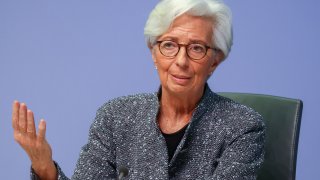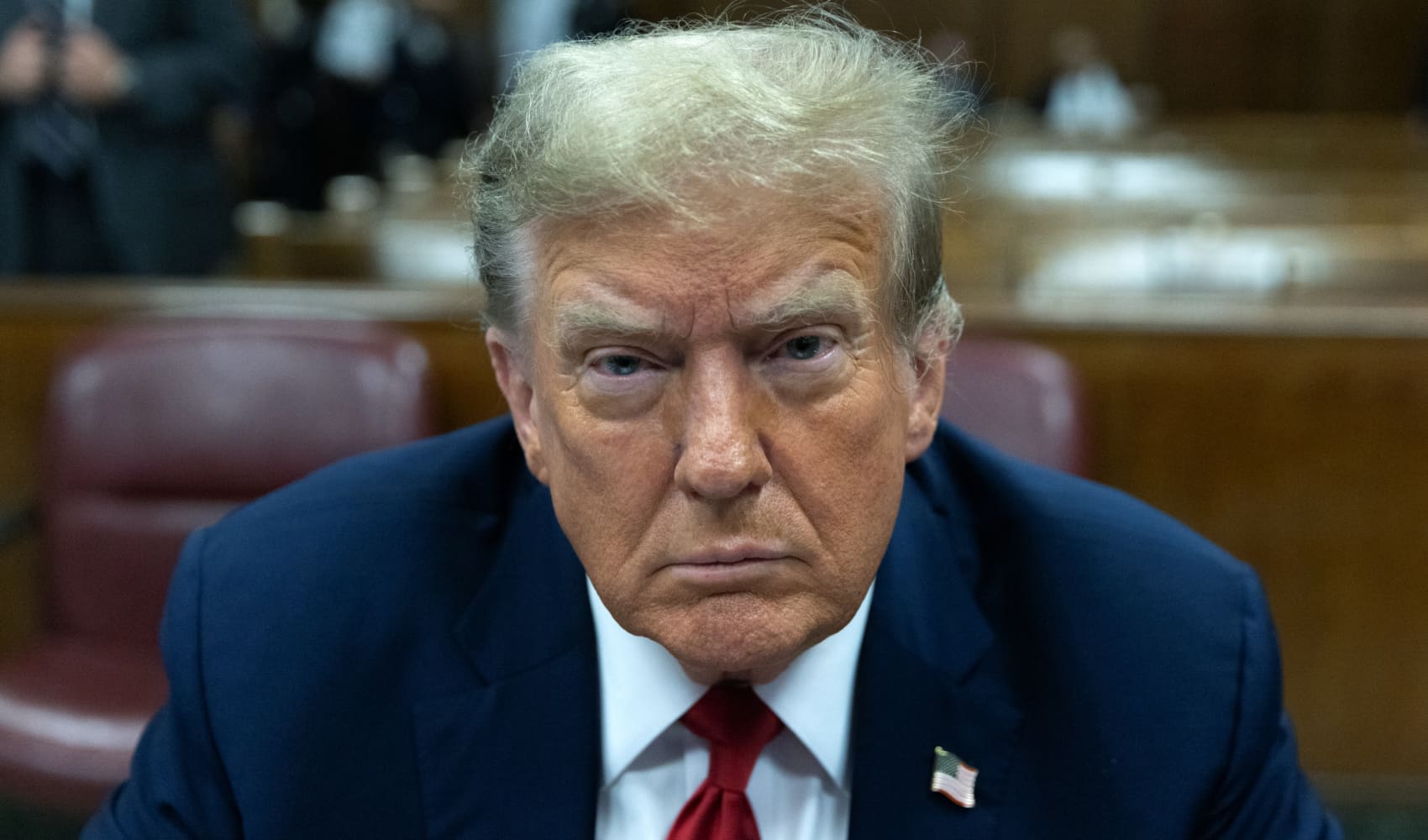
- Market players want answers on how long the central bank will keep up its vast monetary stimulus.
- The ECB has committed to purchasing 1.85 trillion euros ($2.2 trillion) of bonds until March 2022 as part of its Pandemic Emergency Purchase Program (PEPP).
- But, the central bank highlighted it will continue buying bonds until it judges that the crisis is over.
The European Central Bank chose not to signal when it might start reducing its pandemic-era stimulus program on Thursday, and expects inflation to remain below its target in the foreseeable future.
"Inflation has picked up over recent months, largely on account of base effects, transitory factors and an increase in energy prices. It is expected to rise further in the second half of the year, before declining as temporary factors fade out," ECB President Christine Lagarde said at a press conference Thursday following the bank's regular rate decision.
"Our new staff projections point to a gradual increase in underlying inflation pressures throughout the projection horizon, although the pressures remain subdued in the context of still significant economic slack that will only be absorbed gradually over the projection horizon. Headline inflation is expected to remain below our aim over the projection horizon," she added.
Get Connecticut local news, weather forecasts and entertainment stories to your inbox. Sign up for NBC Connecticut newsletters.
Recent data has shown an overshoot in inflation for the 19-member area that shares the euro, to above the ECB's target of close to, but below, 2%. The ECB had previously said it was expecting prices to pick up in 2021, but only temporarily.
The data has raised questions about the future of monetary policy in the euro zone, with market players wanting answers on how long the central bank will keep up its vast monetary stimulus. The ECB committed to purchasing 1.85 trillion euros ($2.2 trillion) of bonds until March 2022 as part of its Pandemic Emergency Purchase Program (PEPP).
On Thursday the central bank decided to keep this stimulus on the table, and its ultra-low interest rates were also left unchanged.
Money Report
Brighter outlook
The ECB presented an update to the economic outlook in the euro zone on Thursday. The bank now expects a gross domestic product rate of 4.6% for 2021 and 4.7% for 2022 — both of which have been revised upward.
In terms of inflation, the ECB also presented new, higher forecasts for 2021 and 2022 from a previous assessment in March. Annual inflation is now set to reach 1.9% this year and 1.5% in 2022.
Carsten Brzeski, global head of macro at ING Germany, said in a note that the ECB clearly wanted to avoid any taper talk at Thursday's meeting and therefore chose to stay put.
Andrew Kenningham, chief Europe economist at Capital Economics, said the euro zone's central bank is still likely to engineer a very gradual taper in the second half of this year."
"But the big picture is that policy will remain highly accommodative for a long time to come," he added.






